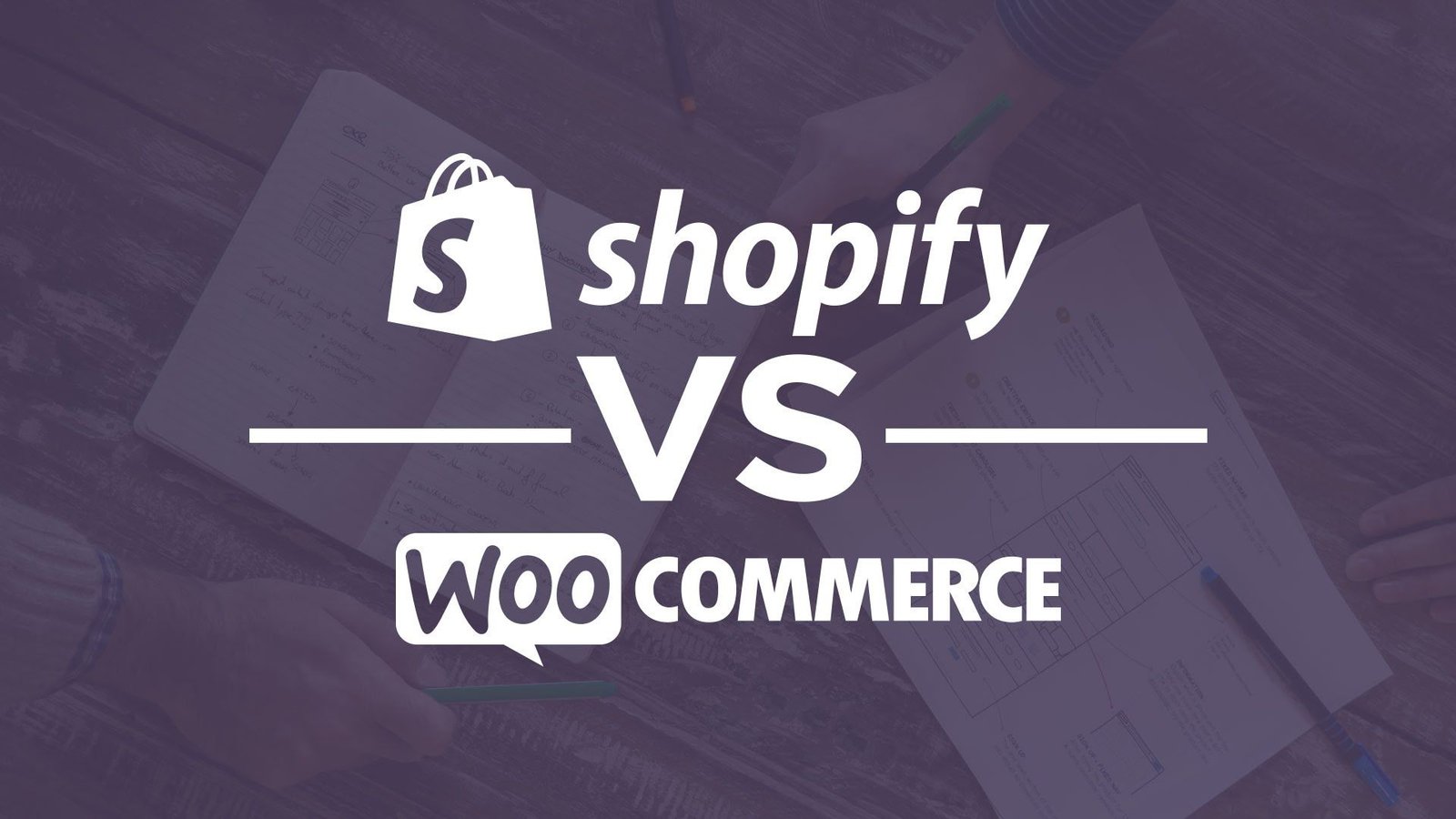When it comes to building an eCommerce store, choosing the right platform is one of the most critical decisions you’ll make. Two of the most popular platforms are Shopify and WooCommerce. Both have their strengths, and the right choice depends on your specific needs. In this guide, we’ll compare Shopify and WooCommerce, exploring their features, pricing, ease of use, customization options, and more to help you make an informed decision.
What Is Shopify?
Shopify is a hosted eCommerce platform that allows you to create, customize, and manage an online store. Known for its ease of use, Shopify provides everything you need out of the box, including hosting, security, and built-in tools for selling online.
Key Features of Shopify
- Ready-to-use templates for quick store setup.
- Seamless integration with payment gateways.
- Extensive app store for added functionality.
- 24/7 customer support.
What Is WooCommerce?
WooCommerce is an open-source eCommerce plugin for WordPress. It transforms a WordPress website into a fully functional online store. WooCommerce offers flexibility and customization, making it ideal for those who want complete control over their store’s design and functionality.
Key Features of WooCommerce
- Full customization with open-source architecture.
- Integration with thousands of WordPress themes and plugins.
- Cost-effective for small and large stores.
- A strong community for support and development.
Do You Need WordPress Websites Halifax? Click Now

Ease of Use: Shopify vs WooCommerce
Shopify: User-Friendly and Beginner-Friendly
Shopify is designed for users of all skill levels.
- Setup: Store creation is straightforward with step-by-step guidance.
- Dashboard: Intuitive interface with drag-and-drop options.
- Hosting: Includes hosting, so you don’t need to worry about servers or technical maintenance.
WooCommerce: Ideal for Tech-Savvy Users
WooCommerce requires a bit more technical knowledge, especially during setup.
- Setup: You need to install WordPress and WooCommerce manually.
- Dashboard: Offers robust features but can be overwhelming for beginners.
- Hosting: Requires separate hosting, which adds complexity.
Customization Options
Shopify: Limited but Reliable Customization
Shopify provides access to a range of themes and an app store for added features.
- Themes: High-quality, mobile-responsive themes, but limited customization unless you use Liquid (Shopify’s coding language).
- Apps: Extensive app store with both free and paid options for added functionality.
WooCommerce: Endless Customization
WooCommerce shines in customization.
- Themes: Compatible with nearly all WordPress themes, offering thousands of choices.
- Plugins: The WordPress ecosystem includes thousands of plugins to extend functionality.
- Code Access: Open-source architecture allows developers to have full control.
Scalability: Shopify vs WooCommerce
Shopify: Built for Growth
Shopify handles scalability seamlessly:
- Hosting: Scales automatically with your traffic.
- Apps: Add features to support a growing business.
- Support: 24/7 support ensures assistance as you expand.
WooCommerce: Highly Scalable with Effort
WooCommerce offers scalable solutions but requires manual adjustments:
- Hosting Upgrades: You’ll need to move to higher-tier hosting as traffic grows.
- Plugins: Add advanced features as needed.
- Customization: Developers can optimize your store for high traffic.
SEO Capabilities
Shopify: Simplified SEO
Shopify provides basic SEO tools:
- Built-in optimization for meta titles, descriptions, and URLs.
- Fast loading speeds with Shopify’s hosting.
- Limited flexibility compared to WooCommerce.
WooCommerce: Advanced SEO Flexibility
WooCommerce is ideal for SEO enthusiasts:
- Integration with WordPress SEO plugins like Yoast SEO.
- Complete control over meta tags, descriptions, and schema markup.
- Opportunity to optimize every aspect of your site’s performance.

Security
Shopify: Managed Security
Shopify handles all security concerns, including:
- PCI compliance for payment processing.
- Automatic updates and security patches.
- SSL certificates are included in all plans.
WooCommerce: Responsibility Falls on You
With WooCommerce, you’re in charge of security:
- Must install and manage SSL certificates.
- Need to handle WordPress updates and backups.
- Security plugins are essential to protect your store.
Payment Gateway Options
Shopify: Extensive but Limited by Fees
Shopify supports multiple payment gateways but adds fees for external providers:
- Shopify Payments: No additional fees.
- Other Gateways: Transaction fees range from 0.5% to 2%.
WooCommerce: Flexible and Cost-Effective
WooCommerce offers seamless integration with payment gateways:
- Supports PayPal, Stripe, and dozens of others.
- No additional transaction fees.
Support and Community
Shopify: Comprehensive Customer Support
- 24/7 customer support via live chat, email, and phone.
- Extensive documentation and tutorials.
WooCommerce: Community-Driven Support
- No official support team; rely on forums and community groups.
- Premium support is available through hosting providers and third-party developers.
Who Should Choose Shopify?
Shopify is the right choice if:
- You need an all-in-one solution that simplifies store management.
- You don’t want to deal with hosting, security, or technical maintenance.
- You’re okay with limited customization in exchange for ease of use.
Who Should Choose WooCommerce?
WooCommerce is ideal if:
- You want full control over your store’s design and functionality.
- You’re comfortable managing hosting, security, and updates.
- You’re working with a smaller budget and prefer a flexible, cost-effective solution.
Final Verdict: Shopify vs. WooCommerce
Choosing between Shopify and WooCommerce depends on your priorities. If you value simplicity and ease of use, Shopify is an excellent option. On the other hand, if you’re looking for flexibility and complete control, WooCommerce is the better choice.
By evaluating your business needs, budget, and technical expertise, you can select the platform that will best support your eCommerce goals. Whether you choose Shopify or WooCommerce, both platforms have the potential to help you build a successful online store
